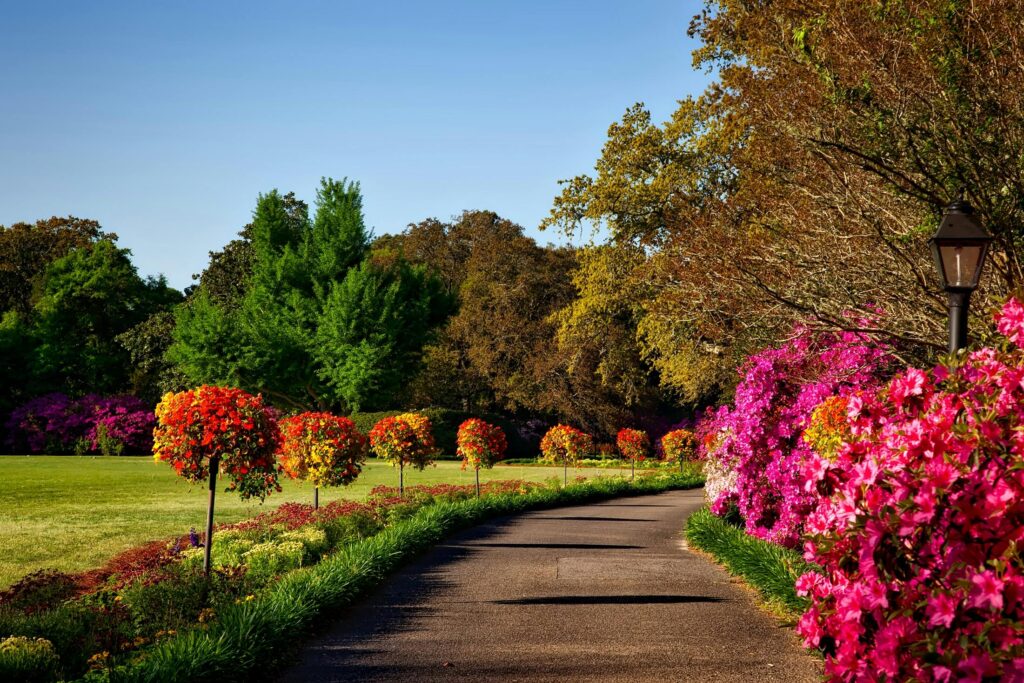Expert Landscaping Tips for Kenyan Homeowners: How to Maximize Your Outdoor Space

Landscaping can significantly enhance your home’s value and beauty, especially in Kenya, where the climate and natural resources offer unique gardening opportunities. For Kenyan homeowners, maximizing outdoor space means creating a functional, beautiful, and low-maintenance landscape that complements the local environment. Here are expert landscaping tips to help you make the most of your outdoor space.
1. Choose Native and Drought-Tolerant Plants
Kenya’s climate varies, but drought-tolerant and native plants generally thrive best, requiring less water and maintenance. Incorporate plants like Aloe Vera, Bougainvillea, and Agapanthus, which adapt well to Kenya’s warmer conditions. These plants are visually striking and hardy, ensuring a vibrant landscape without extensive irrigation.
- Benefit: Native plants are more likely to attract local wildlife and support the ecosystem.
- Tip: Group plants with similar water needs together for easier care and reduced water waste.
2. Create Functional Zones
Organize your outdoor space by creating distinct zones for relaxation, dining, gardening, and play. This approach makes even small spaces more functional and inviting.
- Relaxation Zone: Set up a shaded sitting area with comfortable furniture, ideally under a pergola or tree.
- Dining and Entertainment Area: Add a patio or deck space for outdoor meals and gatherings.
- Gardening Zone: Dedicate a small space for a vegetable or herb garden, which can thrive in Kenya’s sunny conditions.
3. Incorporate Hardscaping for Low Maintenance
Hardscaping elements such as stone pathways, gravel areas, and paved patios reduce lawn space, minimizing the need for regular mowing and watering. Use local stones and materials that blend with the environment to add natural beauty and durability.
- Benefit: Hardscaping enhances durability and reduces water usage.
- Tip: Use gravel or crushed stones around plants to prevent soil erosion and conserve moisture.
4. Plant Trees Strategically for Shade and Privacy
Trees offer natural shade, privacy, and energy savings by cooling your home during hot seasons. Choose fast-growing species like Jacaranda, Flame Tree, or African Olive, which are well-suited to Kenya’s climate.
- Placement: Plant trees near sitting areas or along property lines to shield your outdoor space from direct sunlight and neighboring views.
- Maintenance: Prune trees regularly to maintain shape and health, and avoid planting too close to your home to prevent root interference.
5. Use Vertical Gardening to Save Space
For compact gardens or urban settings, vertical gardening allows you to add greenery without taking up much ground space. Install wall planters, hanging pots, or trellises to grow vines, herbs, and small flowering plants.
- Best Options: Herbs like basil, parsley, and mint grow well in vertical spaces and provide fresh ingredients for cooking.
- Tip: Vertical gardens also improve privacy by creating a green wall that screens your outdoor area from view.
6. Install a Simple Irrigation System
Efficient water management is key in Kenya, especially during dry seasons. Set up a drip irrigation system or use soaker hoses to deliver water directly to plant roots, minimizing evaporation and water wastage.
- DIY Option: Reuse rainwater by installing a rain barrel to collect runoff, which you can later use to water your plants.
- Time Saving: An automated timer can help you regulate watering schedules, making it easier to maintain a healthy garden.
7. Include Mulching to Conserve Moisture
Mulching keeps soil cool and reduces evaporation, essential in Kenya’s sunny climate. Organic mulches like bark, leaves, or compost also enrich the soil as they decompose.
- Application: Apply a 2-3 inch layer of mulch around plant bases and garden beds.
- Tip: Mulch also reduces weed growth, which means less time spent on maintenance.
8. Embrace the Beauty of Edible Landscaping
Combine function and beauty by planting fruits and vegetables within your landscape. Plants like papaya, bananas, spinach, and kale not only look attractive but also provide fresh produce.
- Best Choices: Leafy greens, tomatoes, and herbs can be grown in pots or raised beds, ideal for small spaces.
- Benefit: Edible landscaping reduces food costs and offers the satisfaction of growing your own produce.
9. Add Outdoor Lighting for Safety and Ambiance
Well-placed outdoor lighting enhances your landscape’s beauty and usability at night. Solar-powered lights are an eco-friendly choice that works well for illuminating pathways, patios, and trees.
- Types: Consider solar lanterns, string lights, or LED spotlights to create a warm and inviting atmosphere.
- Benefit: Outdoor lighting also improves safety by illuminating walkways and entryways, deterring intruders.
10. Maintain a Simple, Sustainable Lawn Design
If you prefer some lawn space, keep it simple and low-maintenance. Opt for grass varieties like Bermuda or Kikuyu, which are resilient and require minimal watering.
- Alternative: For extremely dry areas, consider ground cover plants such as creeping thyme or clover, which need less water and mowing.
- Tip: Mow at the recommended height and avoid over-watering to keep your lawn healthy and environmentally sustainable.
Final Thoughts
Maximizing outdoor space for Kenyan homes involves choosing native plants, efficient water practices, and creating distinct zones that enhance usability. By incorporating these landscaping tips, you can create a beautiful, functional, and sustainable garden that thrives in Kenya’s unique climate. Mail us or contact us for quality service at affordable prices.